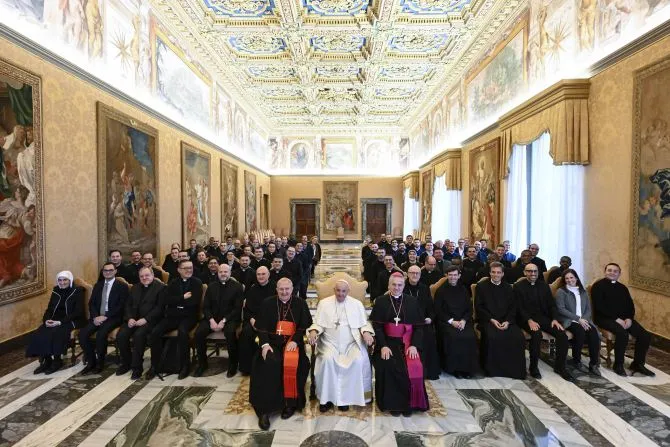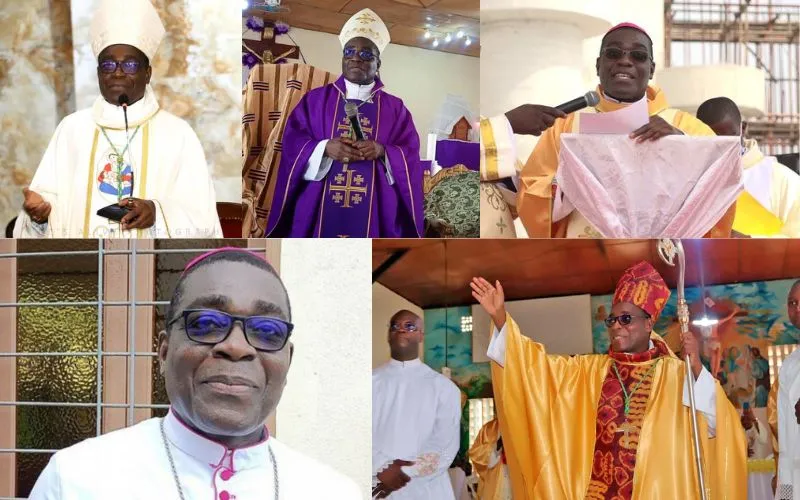The pope said one of the aims of the liturgical reform of the Second Vatican Council was “to accompany the faithful to recover the ability to live the liturgical action in its fullness and to continue to marvel at what happens in the celebration before our eyes.”
Francis underlined that the Council was not talking about aesthetic joy or the aesthetic sense but wonder and amazement.
“Awe is something different from aesthetic pleasure: it is encounter with God. Only encounter with the Lord gives you awe,” he said.
To this end, the pope said, the liturgical formation of priests is essential, since they go on to form the faithful, who see whether they celebrate Mass properly and in a prayerful way.
Pope Francis also urged those who help organize liturgical celebrations to cultivate silence, especially immediately before the Mass, when people sometimes act like they are at a social gathering.
Silence in the pews and in the sacristy “helps the assembly and the concelebrants to focus on what is going to be accomplished,” he said.
“Fraternity is beautiful, greeting each other is beautiful, but it is the encounter with Jesus that gives meaning to our meeting with each other, to our gathering,” he said. “We must rediscover and value silence.”
The pope encouraged those who help a priest or bishop organize all of the ministers of liturgical celebrations, called masters of ceremonies, help “enhance the celebratory style experienced” in parishes.
He gave the example of when a bishop goes to celebrate Mass at a local parish.
“There is no need,” he said, “to have a nice ‘parade’ when the bishop is there and then everything goes back to the way it was. Your task is not to arrange the rite of one day, but to propose a liturgy that is imitable, with those adaptations that the community can take on board to grow in the liturgical life.”








